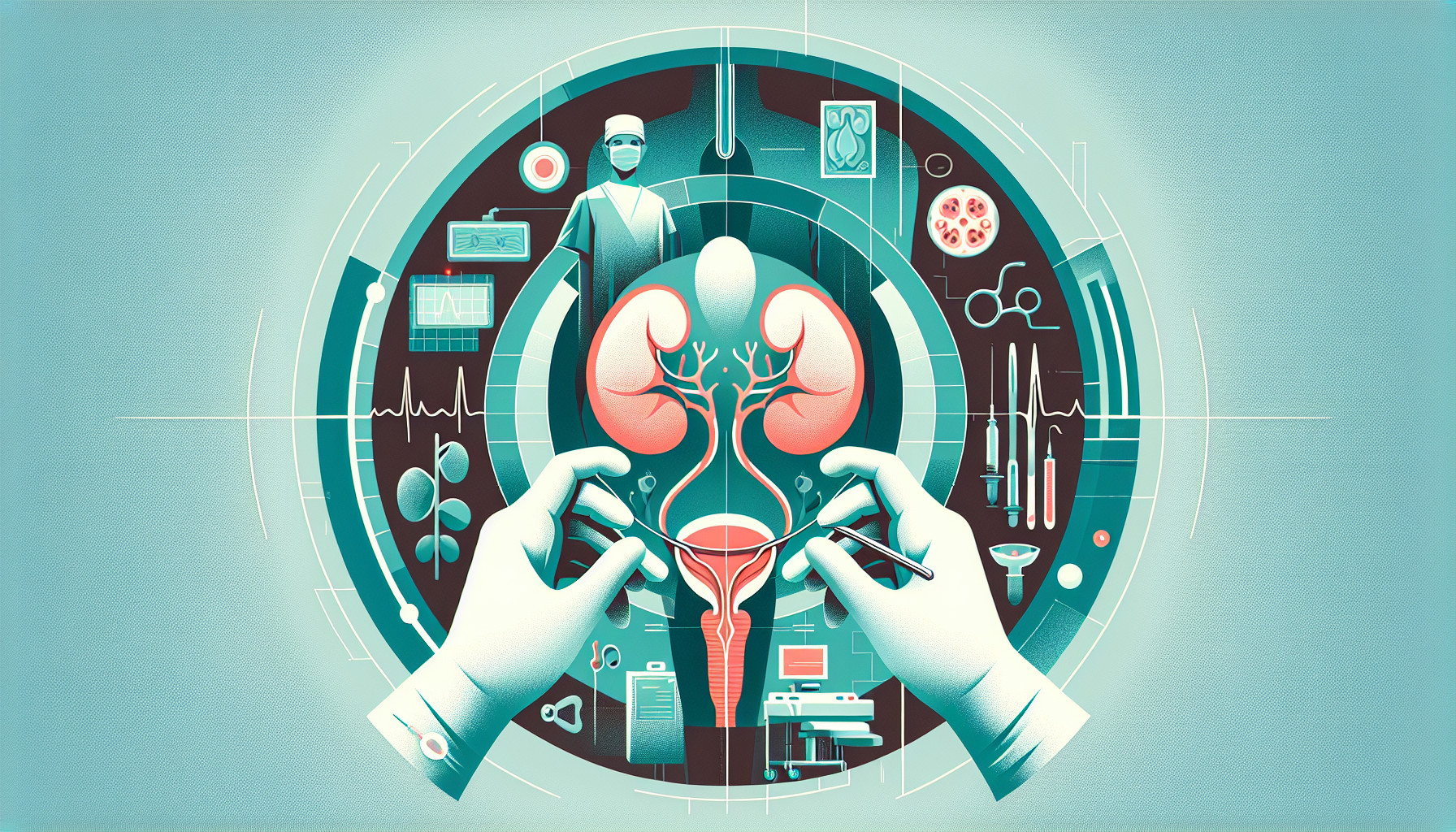Our Summary
This study aimed to find out if filling the bladder with saline solution before a specific type of surgery (cesarean hysterectomy) for a condition called placenta accreta could reduce the chance of damaging the bladder during the operation. It also looked at how the operation and recovery outcomes differed between patients whose bladders were filled and those that were not.
The researchers looked at 88 patients who had this surgery between 2009 and 2019. Just over half had their bladders filled with saline before the operation, while the rest did not. They found that the patients who had their bladders filled were less likely to experience bladder damage during surgery. They also discovered that the operations were quicker for patients who had their bladders filled.
The conclusion was that filling the bladder with a saline solution before a cesarean section is a simple and effective way to reduce the risk of bladder damage during placenta accreta surgery.
FAQs
- What was the purpose of the study involving bladder filling with saline solution before surgery?
- Did the patients who had their bladders filled with saline solution experience less bladder damage during surgery?
- Does filling the bladder with a saline solution affect the duration of the operation during a cesarean hysterectomy?
Doctor’s Tip
A helpful tip a doctor might tell a patient about bladder surgery is to follow the post-operative care instructions closely to ensure proper healing and minimize the risk of complications. This may include taking prescribed medications, avoiding strenuous activities, keeping the surgical site clean and dry, and attending follow-up appointments with your healthcare provider. It is important to communicate any concerns or changes in symptoms to your doctor promptly.
Suitable For
Patients who are typically recommended bladder surgery include those with conditions such as bladder cancer, urinary incontinence, bladder stones, interstitial cystitis, bladder prolapse, and neurogenic bladder. Additionally, patients with severe bladder dysfunction or recurrent urinary tract infections may also be recommended for bladder surgery.
Timeline
Before bladder surgery:
- Patient is diagnosed with a condition that requires bladder surgery, such as placenta accreta
- Patient undergoes pre-operative testing and evaluation to determine the best course of treatment
- Patient discusses the surgery with their healthcare provider and prepares for the procedure
- In some cases, the patient may need to undergo a procedure to fill the bladder with saline solution before surgery to reduce the risk of bladder damage
After bladder surgery:
- Patient is monitored closely in the recovery room immediately following the surgery
- Patient may experience pain, discomfort, and limited mobility in the days following the surgery
- Patient will be given instructions on how to care for the surgical site and manage any pain or discomfort
- Patient will have follow-up appointments with their healthcare provider to monitor their recovery and ensure proper healing
- Patient may need to undergo physical therapy or other treatments to help regain bladder function and improve overall recovery
Overall, the timeline for a patient before and after bladder surgery can vary depending on the specific procedure and individual circumstances. It is important for patients to follow their healthcare provider’s recommendations and guidelines to ensure a successful recovery.
What to Ask Your Doctor
- What are the potential risks and complications associated with bladder surgery for placenta accreta?
- How will filling my bladder with saline solution before surgery affect my recovery time?
- Will filling my bladder with saline solution increase the likelihood of infection or other complications?
- How long will I need to stay in the hospital after bladder surgery?
- What can I expect in terms of pain management and discomfort after the surgery?
- Will I need to follow any specific post-operative care instructions for my bladder?
- How will bladder surgery affect my ability to urinate normally after the procedure?
- Are there any long-term effects or complications associated with bladder surgery for placenta accreta?
- How experienced are you in performing bladder surgery for placenta accreta?
- Are there any alternative treatment options to consider before undergoing bladder surgery?
Reference
Authors: Celik S, Celik H, Soyer Calıskan C, Tosun M, Hatirnaz S. Journal: J Matern Fetal Neonatal Med. 2021 Jul;34(13):2206-2211. doi: 10.1080/14767058.2019.1670809. Epub 2019 Oct 1. PMID: 31570023
